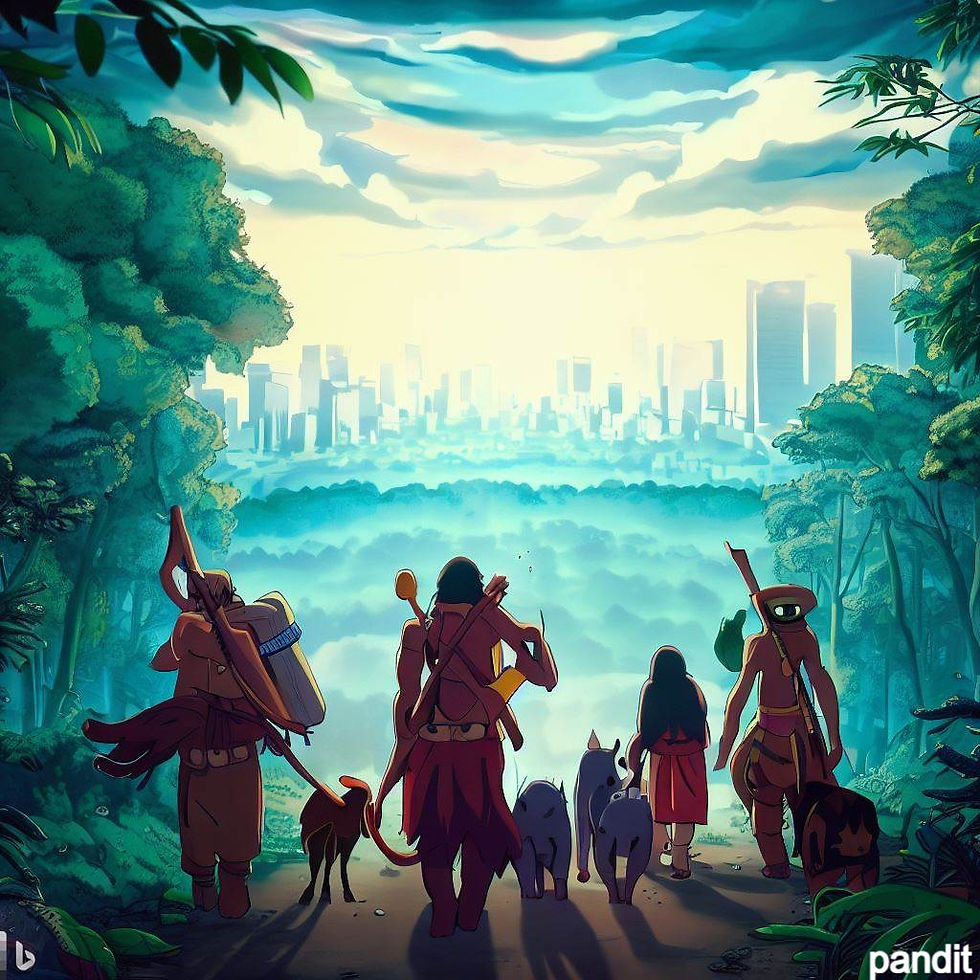In an era marked by pressing environmental challenges, the need for sustainable conservation practices has never been more critical. As we grapple with the consequences of climate change, biodiversity loss, and ecological degradation, it is imperative that we acknowledge and embrace the invaluable insights offered by indigenous communities worldwide. These communities, with their deep-rooted connection to the natural world and time-tested sustainable practices, have long served as the guardians of the Earth. In this article, we will explore the significance of indigenous wisdom in environmental conservation, emphasizing the importance of learning from these resilient communities.
Understanding Indigenous Wisdom

Indigenous wisdom represents a profound holistic worldview that acknowledges the intricate interdependencies between all living beings. These communities understand the delicate balance of ecosystems, acting as caretakers of the Earth. Their sustainable practices prioritize the long-term wellbeing of the environment over short-term gains, embodying a harmonious coexistence with nature.
Diversity of Indigenous Cultures and Practices
The tapestry of indigenous cultures is rich and diverse, encompassing a multitude of unique approaches to conservation rooted in ancestral traditions and local environments. From the Maasai people of East Africa to the Inuit of the Arctic, each indigenous group has developed its conservation strategies. By delving into these practices, we gain invaluable insights into diverse ways of nurturing and protecting the Earth.
Historical Exploitation and Displacement of Indigenous Peoples
Colonization and its Impact
Sadly, the legacy of colonization has brought immense suffering and ongoing consequences for indigenous communities. Forced assimilation and cultural erasure have stripped them of their identities and traditional knowledge, diminishing their ability to sustainably manage their lands. The loss of traditional land and resource rights has further marginalized these communities, leaving them vulnerable to exploitation and environmental degradation.
Environmental Consequences of Ignoring Indigenous Knowledge
The disregard for indigenous knowledge has led to devastating environmental outcomes. Choosing short-sighted approaches over the wisdom of indigenous communities has resulted in the destruction of precious ecosystems and the alarming loss of biodiversity. By acknowledging and honoring indigenous practices, we can mitigate further damage and restore the delicate equilibrium of our planet.
Recognizing the Value of Indigenous Wisdom

Success Stories of Indigenous-led Conservation Efforts
Inspiring success stories showcase how indigenous communities, when empowered and supported, lead exemplary conservation efforts. Through case studies, we witness the effectiveness of community-led initiatives that integrate traditional knowledge with modern scientific techniques. These initiatives not only revive ecosystems but also empower indigenous peoples to reclaim agency over their lands and resources.
The Scientific Validation of Indigenous Knowledge
Modern science validates the value of indigenous knowledge, highlighting the compatibility of traditional practices with current conservation strategies. Collaborative research projects bridging scientists and indigenous communities underscore the potential for a holistic approach to sustainability, fostering greater respect for indigenous cultures.
Restorative Justice for Indigenous Peoples
Land Rights and Self-determination
To truly restore justice for indigenous peoples, advocating for their land rights is paramount. Recognizing their inherent connection to the land, we must support their efforts to protect and care for their traditional territories. Empowering indigenous communities in decision-making processes enhances their ability to implement sustainable practices benefiting both the environment and their communities.
The Importance of Preserving Indigenous Languages and Traditions
Cultural revitalization holds immense significance in the realm of conservation. Preserving indigenous languages, traditions, and oral histories is integral to maintaining a harmonious relationship with the natural world. Traditional knowledge holders, as custodians of centuries-old wisdom, contribute to ecological balance and pass down invaluable lessons to future generations.
Overcoming Challenges and Preserving Indigenous Wisdom
Addressing Systemic Barriers
To protect and preserve indigenous wisdom, we must confront and dismantle institutional discrimination. Recognizing systemic barriers and implementing inclusive policies create an environment conducive to indigenous-led initiatives. Financial and political support is essential to ensure these communities have the resources needed to continue their vital work.
Engaging in Inclusive Partnerships
Building trust and collaboration with indigenous communities is key to integrating their wisdom into global conservation efforts. Inclusive partnerships enable the sharing of resources and opportunities, empowering indigenous communities and enhancing their capacity to safeguard the environment. Embracing their contributions propels us towards a more sustainable future.
The urgency to embrace indigenous wisdom for environmental conservation cannot be overstated. Recognizing the inherent value of indigenous knowledge and practices is essential in shifting global conservation perspectives. By honoring the profound wisdom of indigenous communities, we chart a path towards a more sustainable and harmonious coexistence with the Earth.
FAQs
A. How can individuals support indigenous-led conservation efforts?
"Individuals can support indigenous-led conservation efforts by advocating for indigenous land rights, supporting indigenous-led initiatives financially, and amplifying their voices through awareness campaigns."
B. Can indigenous wisdom be integrated into mainstream conservation practices?
"Yes, indigenous wisdom can and should be integrated into mainstream conservation practices. Collaborative partnerships and the incorporation of traditional knowledge can yield more holistic and effective conservation strategies."
C. How do indigenous communities learn to adapt their practices in a changing world?
"Indigenous communities have a remarkable ability to adapt their practices to a changing world. They combine traditional wisdom with contemporary insights, allowing for a dynamic and resilient approach to environmental conservation."
D. What are the potential challenges faced by indigenous communities in reclaiming their traditional knowledge?
"Indigenous communities face challenges such as cultural erosion, legal barriers, and unequal access to resources when reclaiming their traditional knowledge. Advocacy, support, and recognition of their rights are crucial to overcoming these challenges."
SUPARNA BARDHAN
M.sc environmental science
Banaras Hindu University
Read more articles:

Comentarios